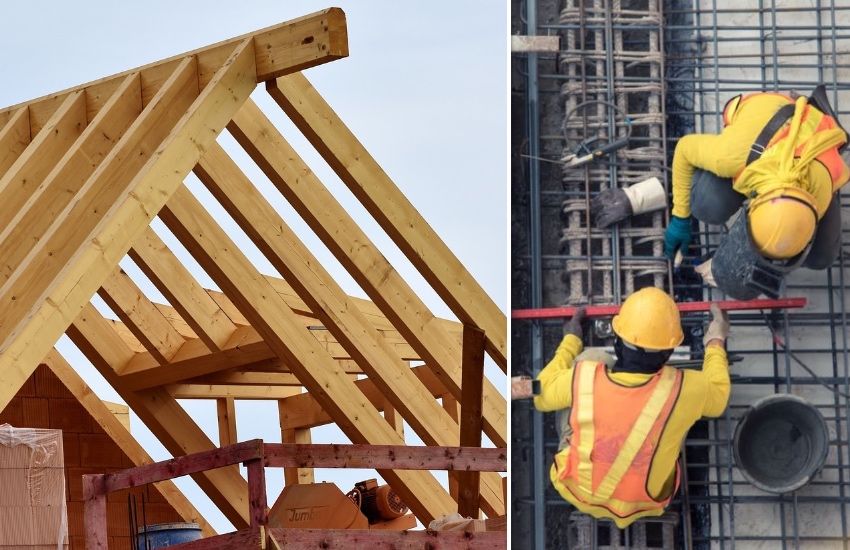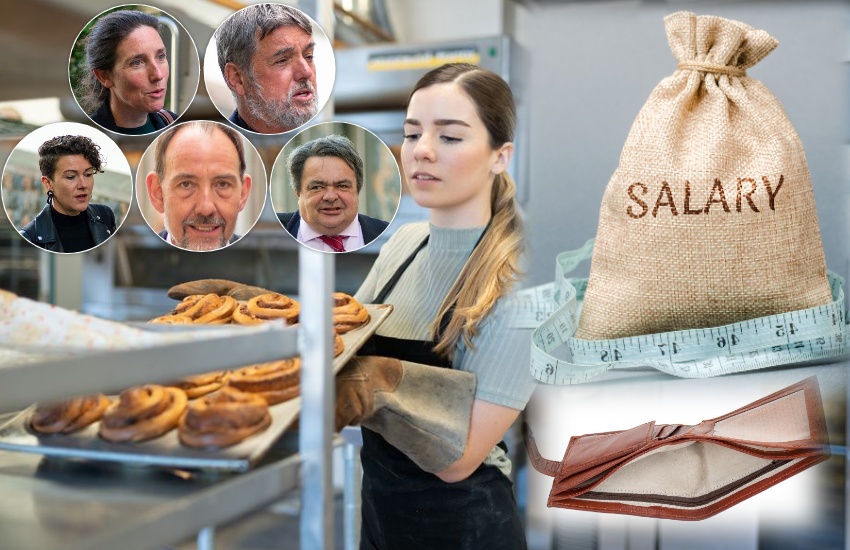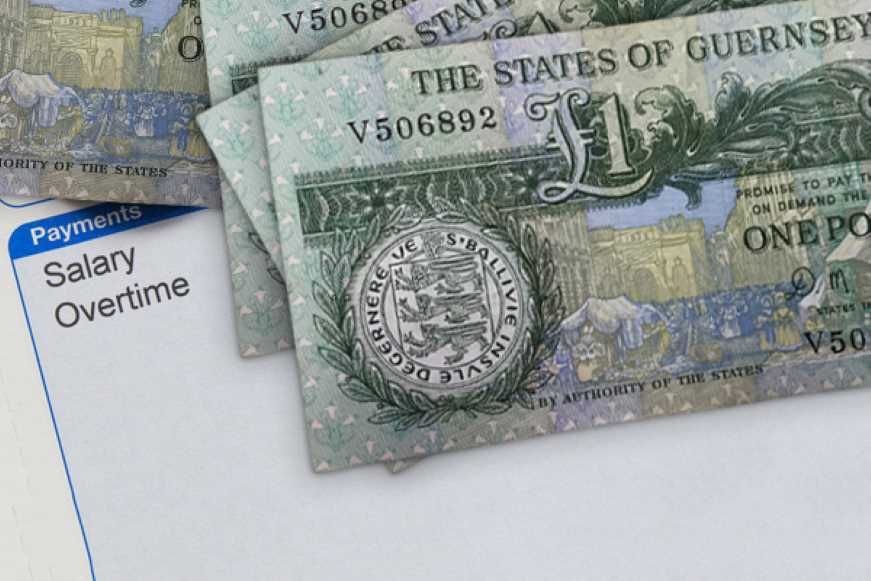


Hourly wages for apprentices and skilled workers within the construction industry should go up - but building firms have warned that'll mean increased costs which will have to be passed on to clients as other rising costs continue to affect the industry.
The AGM of the Guernsey Building Trades Employers Association was held at the end of May when leading figures in the local industry agreed to pay the youngest staff more along with trained staff.
The agreed rise of 6.5% is below the proposed increase to the island's minimum wage for adults which may go up by 11.5% this Autumn.
The Committee for Employment and Social Security is suggesting the minimum rate for 16 and 17 year olds - the age of many new apprentices - goes up by 8%.
Currently 16 and 17 year olds must be paid at least £8.95 an hour, which could go up to £9.65 from October if the States agree that next month. The adult minimum wage could increase from £9.55 to £10.65 if agreed by deputies.
16 and 17 year olds enrolled on approved apprenticeships do not need to be paid the minimum wage as other costs are incurred by their employer, but as soon as they turn 18 the law states that they must be paid the adult minimum wage rate.

Pictured: The Committee for Employment and Social Security oversees the minimum wage and other policies.
ESS said staff carried out a targeted consultation to work out its proposed new rates and so far, only the Committee for Economic Development is opposing the increases. ESS said "the majority of consultees were, on balance, supportive due to the high cost of living in Guernsey".
The GBTEA said its "members were very conscious of recent significant increases in building costs and felt that a prudent approach to any wage increase was justified" but it was determined to agree a new higher rate for its youngest workers and those skilled staff who have worked through their apprentices.
The organisation was however against the proposed increases ESS wants to see across the island - saying that increasing minimum wages at a rate higher than inflation will cause further problems for those being paid minimum wage as wage inflation continues to drive divisions within he economy.

Pictured: The GBTEA members employ apprentices across the construction sector.
The committee members of the GBTEA - which has Steve Roussel as President, supported by Vice-Presidents Kevin Le Tissier and Tom Whitmore - recently wrote to the ESS President, Deputy Peter Roffey sharing their views on the minimum wage and proposed changes.
With construction firms relying on apprentices coming through the education system, the GBTEA welcomed the continued lower rate of pay for those under 18. The letter - published here on the GBTEA website - explained that utilising the under 18 work force "forms an important part of the recruitment strategy for many GBTEA members and in general for the construction sector".
By supporting apprentices through their courses and onto their own career paths, it's argued that the investment goes far beyond their hourly pay with many members of the GBTEA and industry leaders themselves completing apprenticeships and then embarking on "a secure and well-paid career in the construction sector".
The GBTEA committee said that is why it is also against any future attempt to equalise hourly minimum pay rates between those under and over 18 years old.
"...employing a school leaver involves a significant financial commitment by the employer, which may only be recouped several years later when and if an apprentice is fully trained and has gained significant on the job experience," explained the GBTEA. "Therefore, equalising under 18 and adult pay rates would have acted as a significant disincentive to employers to recruit school leavers into the apprenticeship scheme."

Pictured: Apprentices work for their employer and attend tuition at the Guernsey Institute.
Expanding on its concerns over the proposed minimum wage increases being proposed by ESS, the committee said that it wanted "to record in the strongest terms possible the GBTEA’s opposition to increase the minimum rates of pay for adults by 11.5%, which represents a 2.5% increase above RPIX inflation".
The committee said that ESS's strategy of increasing the minimum wages until it reaches 60% of median wages across the island seems "flawed".
"As you raise minimum wages above RPIX you will also increase the median wage, thus requiring further increases in the minimum wage rates in an inflationary positive feedback loop," the GBTEA argued. "Most workers in the construction industry will earn significantly above the minimum wage, but we do understand the objective of your Committee in ensuring that minimum wages are set at a fair and sustainable level. However, these minimum wage rates when imposed on Guernsey industry will also influence the level of wage increase that all workers will expect.
"Increasing minimum wage rates at a rate higher than inflation at a time when inflation is already at an historically high level is simply going to embed wage inflation into the Guernsey economy, which ultimately will be bad for our whole economy, as well as those trying to manage on those minimum wages. If your Committee is still committed to the 60% of median earnings policy then at the very least it should wait until inflation has dropped back to more normal levels before increasing the minimum wage above RPIX."

Pictured: Apprentices may earn below the hourly minimum wage, until they turn 18 when they must be paid at least the adult minimum rate.
Efforts to raise the minimum wage until it is 60% of median earnings date back to 2018, with the then ESS saying "this would ensure that the gap between the Island's lowest paid workers and the workforce average could never grow too wide".
In 2018 the adult minimum wage was £7.75 per hour which was more around £1.50 below what would have been 60% of the then median earnings it was agreed to gradually increase the adult minimum hourly rate over a five-year period, meaning it would have been achieved this year. The covid pandemic meant two years' worth of minimum wage increases were disrupted due to the pressures on the economy. It is now expected that the minimum wage will reach 60% of median earnings by next year if this year's increases are approved.
ESS said: "...the Committee believes that it is necessary to increase the Adult Minimum Wage Rate to £10.65 per hour. The Committee notes that if an increase of this magnitude is not implemented in October 2023, it is unlikely to be possible to achieve the target of 60% of median earnings by October 2024, as the final step change will be too large."
ESS acknowledges that it currently does not know how many people in Guernsey are employed at or close to the minimum wage meaning the impact of any increase is "difficult to predict".
It stated that if some businesses were to pass on any increase in minimum wage to its own customers - as the GBTEA has said the construction industry would have to to - that "could slow the fall of inflation rates, keeping RPIX above average levels for longer" and that "this would in turn have an impact on future wage negotiations and, as such, any potential impacts on inflation could then persist".
It is likely the States will decide on the next minimum wage at its meeting in July or September.
"Agree to disagree" over apprentice funding as talks continue
Staff poaching and wage inflation causing problems for employers
Apprentice funding cut worries construction industry
ESS plan to deny £600 increase to minimum salary for young workers
Comments
Comments on this story express the views of the commentator only, not Bailiwick Publishing. We are unable to guarantee the accuracy of any of those comments.